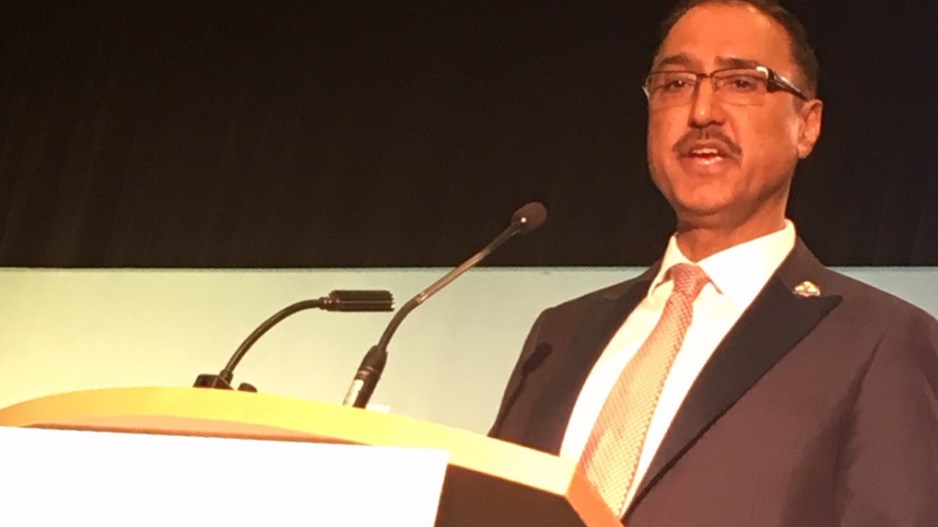The federal government is taking advantage of the Clean Energy Ministerial conference taking place in Vancouver this week to make a series of clean energy funding announcements.
Yesterday, it announced a new $30 million clean energy investment fund. On Tuesday, May 28, Natural Resources Minister Amarjeet Sohi announced his government will invest $15.5 million in energy projects, three of them in remote First Nations communities that rely largely on diesel power.
The largest investment is $10.4 million in Haida Gwaii. The villages of Old Masset and Skidegate want to transition to 100% renewable energy. The funding announced Tuesday will be used to increase the power production from an existing hydro dam, and to install 2 megawatts worth of solar power and power storage.
Other funding announced Tuesday include:
- $1.5 million to the Esk'etemec First Nation for a district heating system expansion that will use wood chips for heating in Alkali Lake, B.C.;
- $2.1 million for building energy retrofit of a student residence at the Nunavut Arctic College; and
- $1.5 million to Carbon Upcycling Technologies for a demonstration project in Calgary that captures CO2 and uses it to make a concrete additive.
Sohi said that energy efficiency and conservation accounts for 25% of the greenhouse gas reductions his government hopes to attain as part of its Paris Agreement commitments.
“This is why we are investing in public transit,” he said, noting that his government earmarked $1 billion in the last federal budget for energy efficiency initiatives.
As for renewable energy, Sohi said his government is investing in tidal power in Nova Scotia, solar power in Alberta and “developing Canada's first geothermal power station in Saskatchewan.”
He also noted that, when the Liberals formed government in 2015, in New Brunswick there wasn't a single charging station in the province for electric vehicles.
“Today, it has a province-wide network,” he said.




